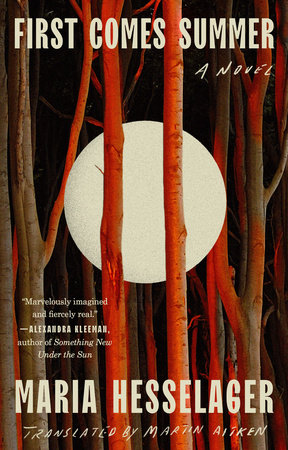First Comes Summer Reader’s Guide
By Maria Hesselager


1. The novel takes place in a remote Viking settlement. How did the author’s depiction of this world compare with your preconceptions of this time and place? Why do you think she chose such a setting and such a portrayal of it?
2. The novel opens with Folkví forcing a substance into the mouth of her brother’s sleeping fiancée, an act whose full, unearthly force is revealed at the end. What did you make of the story’s mythological and supernatural elements? How do they work with or against the characters and their destinies?
3. Folkví wrestles with multiple identities: orphan, shaman, sister, lover. How do each of these roles reflect both her power and her powerlessness? That of women in general?
4. After learning that Áslakr has fallen in love and intends to marry, Folkví is assailed by feelings of grief and abandonment. What did you make of her extreme reaction? In what ways could you identify with her? What seemed alien? What do you think inspired the author to create a heroine of such operatic dimensions?
5. Folkví has been raised in a belief in the Norse divinities. In the course of the novel, she is introduced to “White-Christ.” What differences does she perceive between this new god and those she knows? How do their powers and their relationship to the world of mortals differ?
6. In the brief “Book of the Norns,” Urd reflects that “The coming of Ragnarok will be portended to men by a great Winter, three years long, with no summer in between.” In Norse mythology, Ragnarok is an end-of-days that will culminate in the submersion of the world in water. What is the relationship between Ragnarok and the ideas of fate and freedom with which the novel is concerned? What is its resonance with contemporary environmental concerns?
7. How do Áslakr’s expectations and views of the world differ from Folkví’s? How does gender factor in to these differences? How does his sense of himself and his agency shift as the narrative jumps forward to the eve of his own daughter’s wedding and beyond?
8. Toward the end of the book, we learn that Gerd died giving birth to a daughter, Ranva. After finishing the book, how did your understanding of these events shift? What do you think the author was trying to accomplish by presenting the narrative in this way?
9. Are humans beholden, as Folkví has been raised to believe, to a predetermined destiny like the ones the Norns spin out? What other ideas of fate and freedom does the novel present?
10. The novel ends with a surprising and violent final scene. Were you surprised by it? What did you make of Folkví’s actions? Why do you think the author made such a choice?
Just for joining you’ll get personalized recommendations on your dashboard daily and features only for members.
Find Out More Join Now Sign In